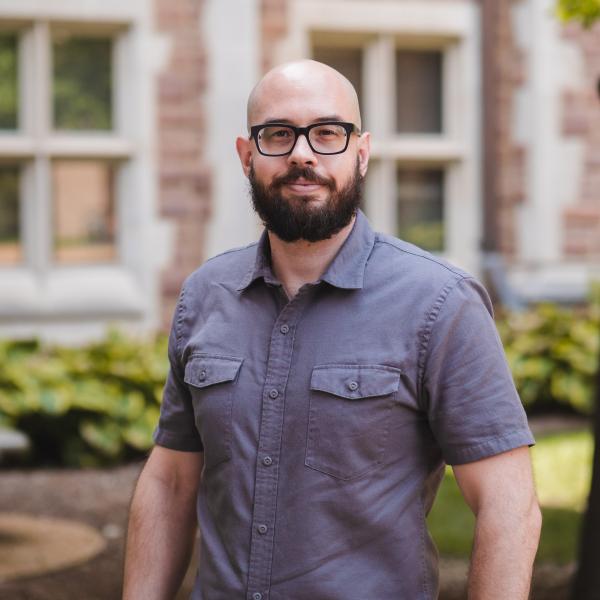Dustin R. Iler holds a Ph.D. in English and American literature from Washington University in St. Louis (2013), where he is a lecturer for the College Writing Program. He teaches “Technology & Selfhood,” an introductory writing course, a writing workshop on engaging research, and “Conspiracy Theories and Online Hoaxes: The Rhetoric of Disinformation.” He also offers upper-division writing courses such as “Argumentation” and “Exposition” for the English Department, as well as literature, writing, and public speaking courses for University College, such as “The American Novel On the Road.”
For the College of Arts & Sciences High School Summer Academy he has designed the course on research, and for previous summer programs has taught “Banned Books” and “Funny Pages: From Comics to Graphic Novels.”
In the time between teaching, reading, and writing, he enjoys running players through the hazards and hilarities of Dungeons & Dragons, contemplating the rigors of kayfabe in professional wrestling and politics, and both contemplating and savoring the moments when life becomes weirder than fiction.


